The village of Ajabaj lies on both banks of the Geghi River, a tributary of the Voghji River. It has only ten houses, a half-ruined church, and a few barns.
Eight people from four families live there year-round.
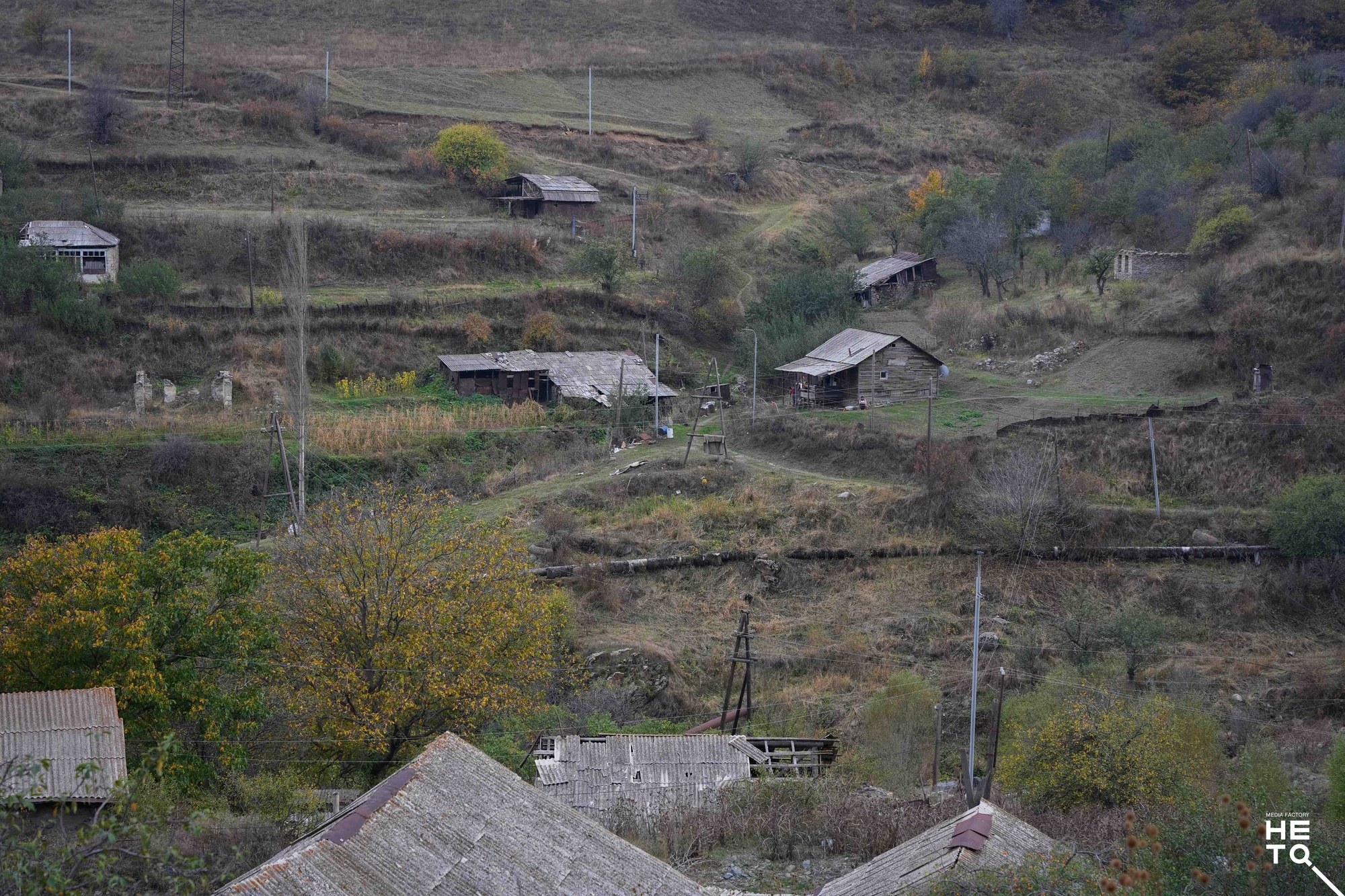
“Thirty years ago, the village had more residents. But after the combines opened in the region, most villagers moved to the city for work,” says Christine, a village resident.
During the Soviet era, Azerbaijanis lived in the village of Ajabaj in the Syunik Region, but they left in 1988 due to military clashes. Christine's parents-in-law were raising livestock in the village of Kavart in the Kapan region before deciding to move to Ajabaj, attracted by the abundant grass. They settled in the village's former schoolhouse, where Christine and her husband Suren now live.
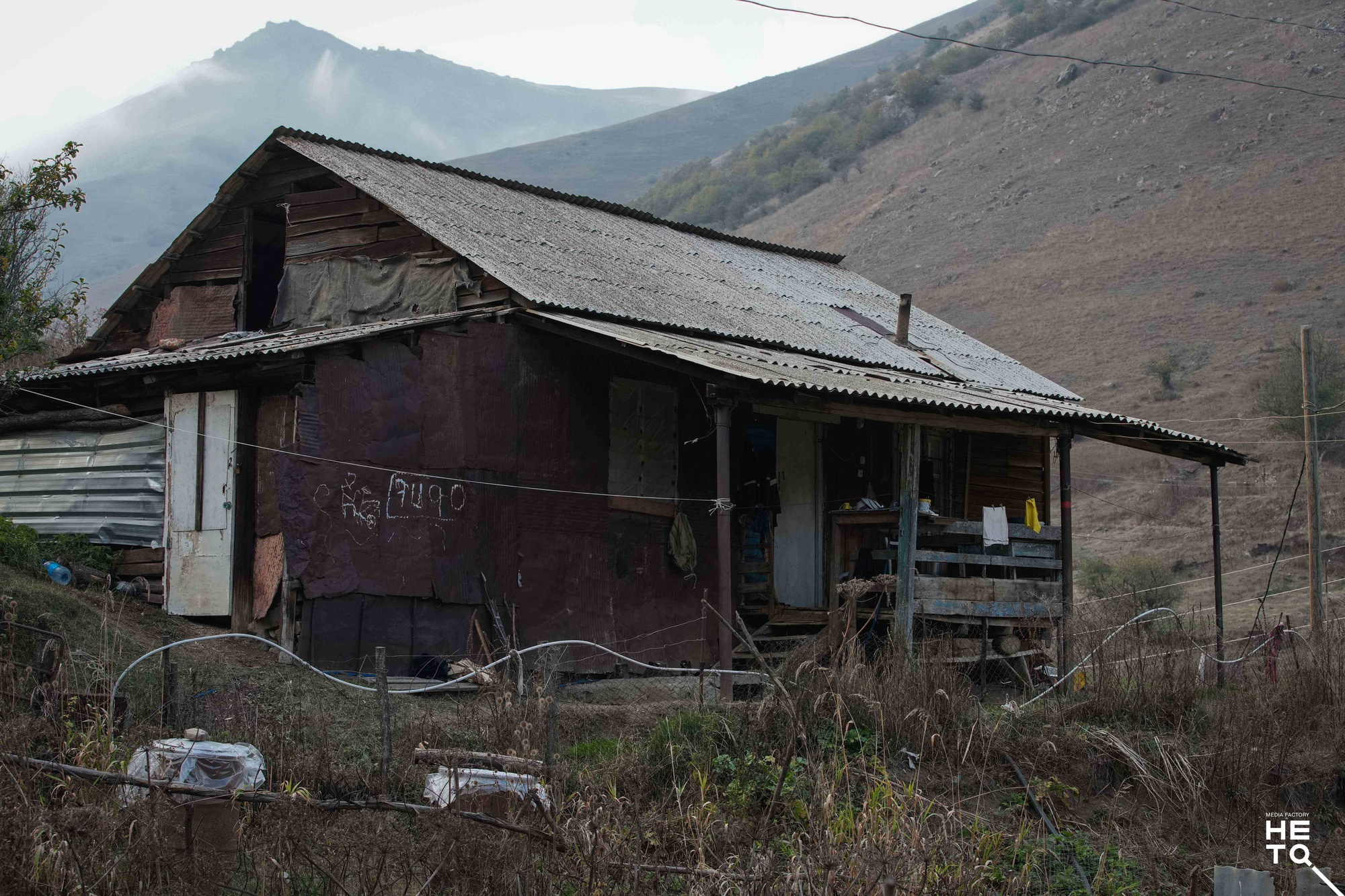
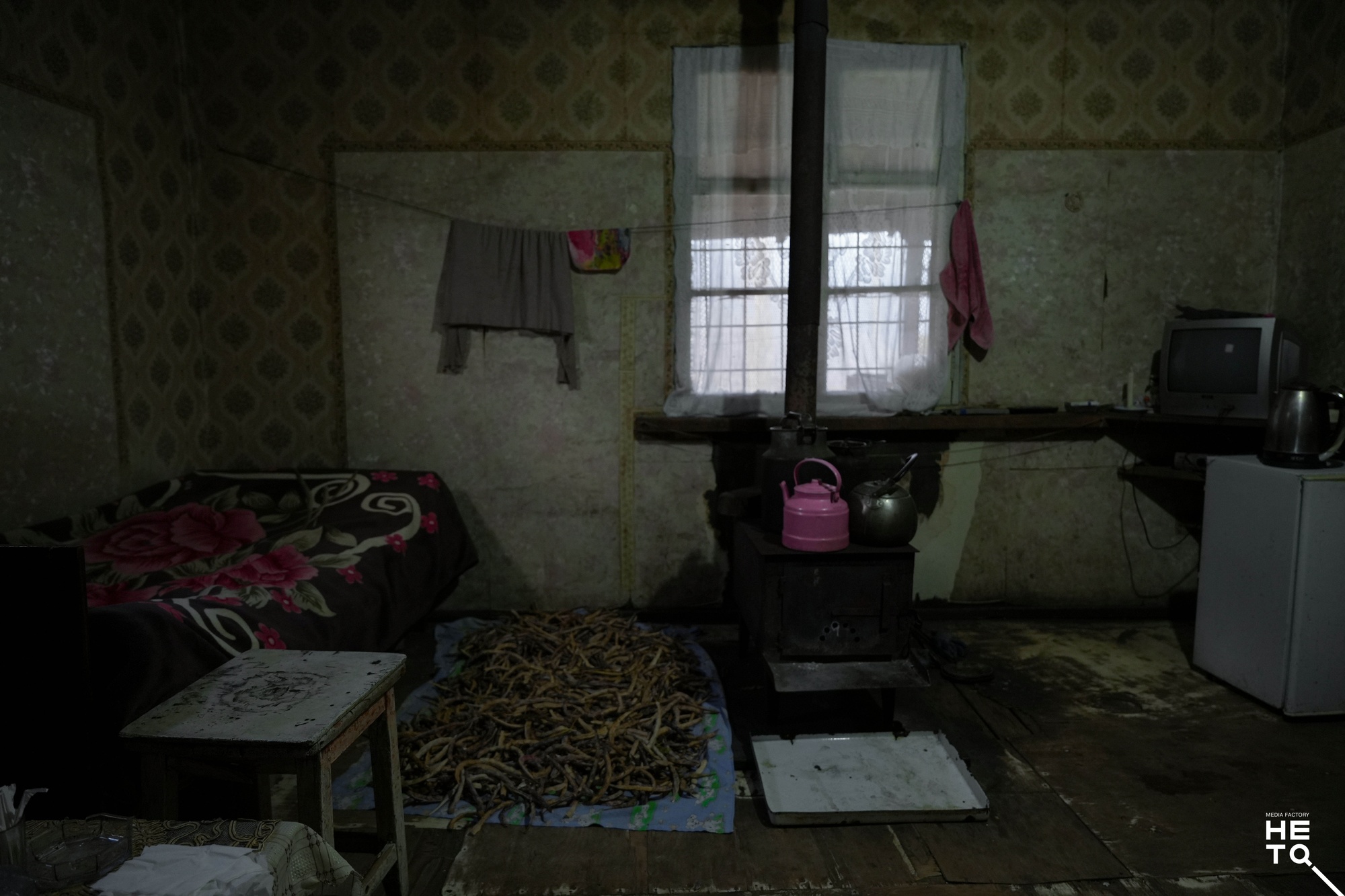
“This used to be the Azerbaijani school. The rooms were large, so we divided them. When we arrived, there was a blackboard on the wall, along with a school desk and chairs,” says Christine.
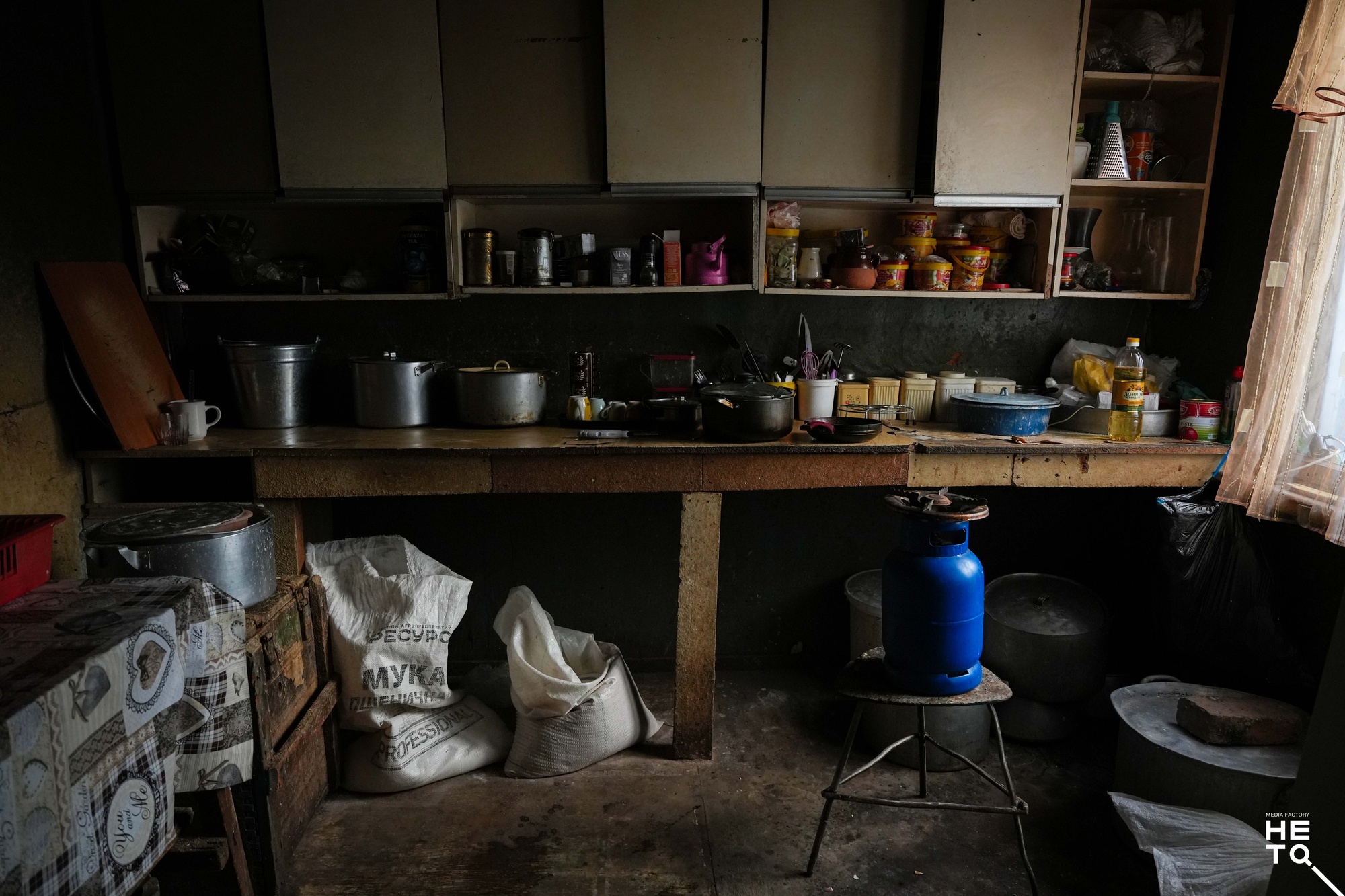
Christine and Suren met during the First Nagorno-Karabakh War.
"In the 1990s, when Kapan was being shelled with Grad missiles, she fled in fear and sought refuge at a relative's house in Kavart. I saw her, brought her to our home, and so she stayed," says Suren.
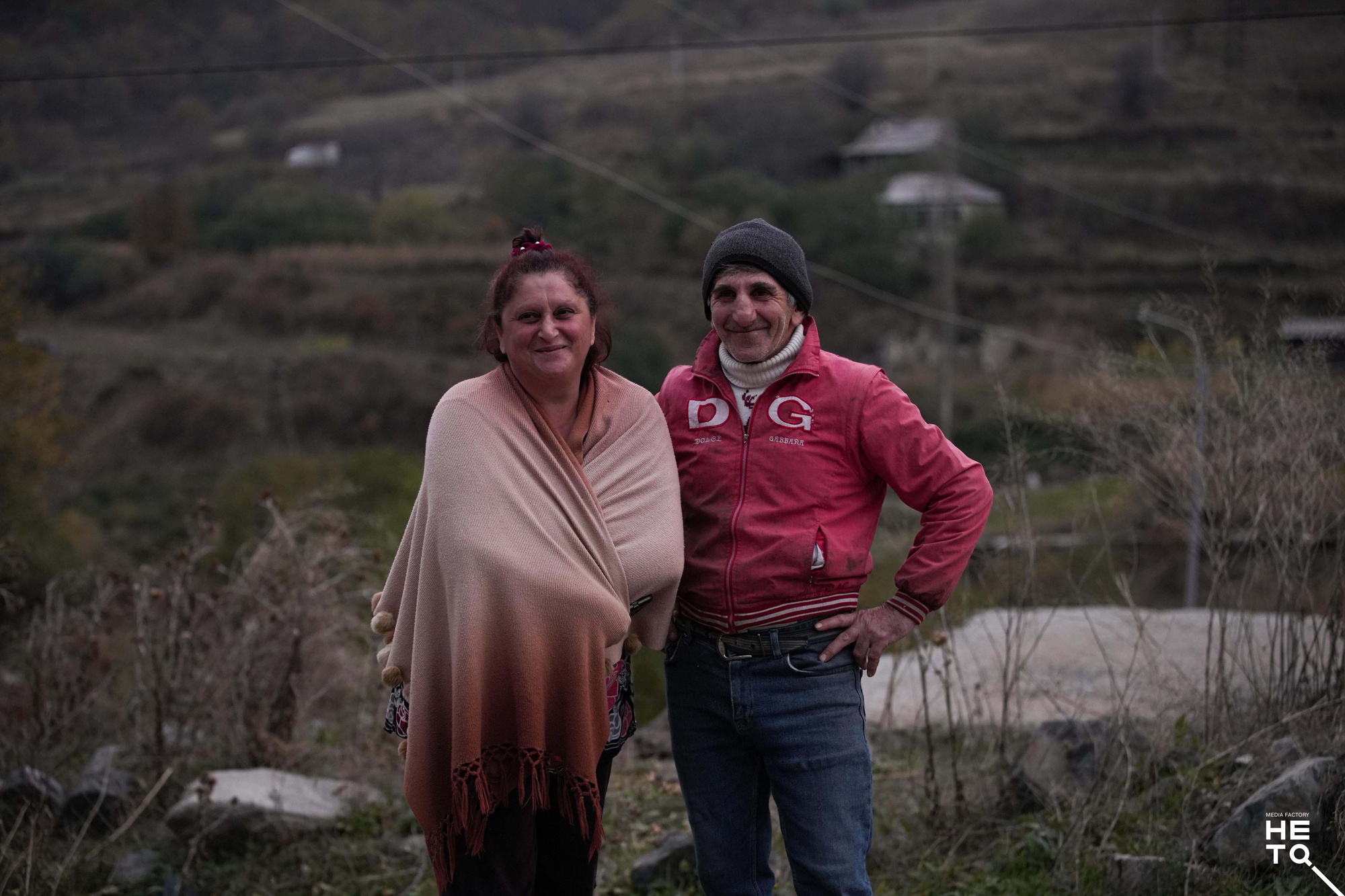
Christine was 16, and Suren was 30 when they got married. Having left his “rich” past in Russia, Suren started a new family in Ajabaj; they have one son.
“I also have a family in Russia; my daughter is older than my son. My first wife, Lida, is 62. When the war started in the 1990s, I returned,” says Suren, laughing. “Now, Lida talks to Christine more than to me.”
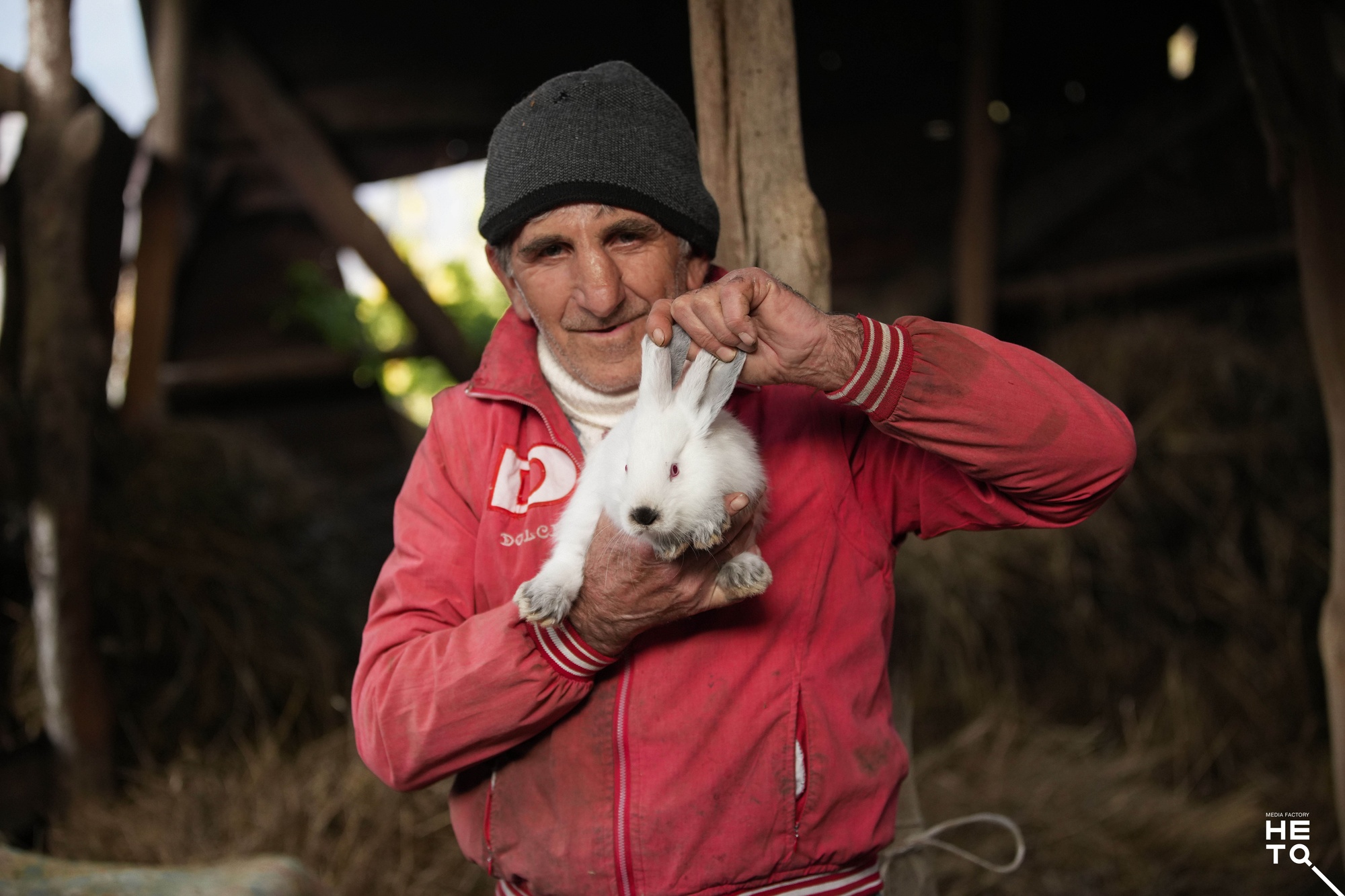
After his parents passed away, Suren and Christine moved to Ajabaj, where they raise livestock and farm. Their only son lives in Kapan.
The couple has divided their chores: Suren milks the cows, and Christine makes cheese from the milk. They grow beans, potatoes, and cucumbers on their plot near the house, harvest sorrel, and make sour lavash from plums. They also raise pigs and rabbits for meat to sell. They find ways to earn income through various sources.
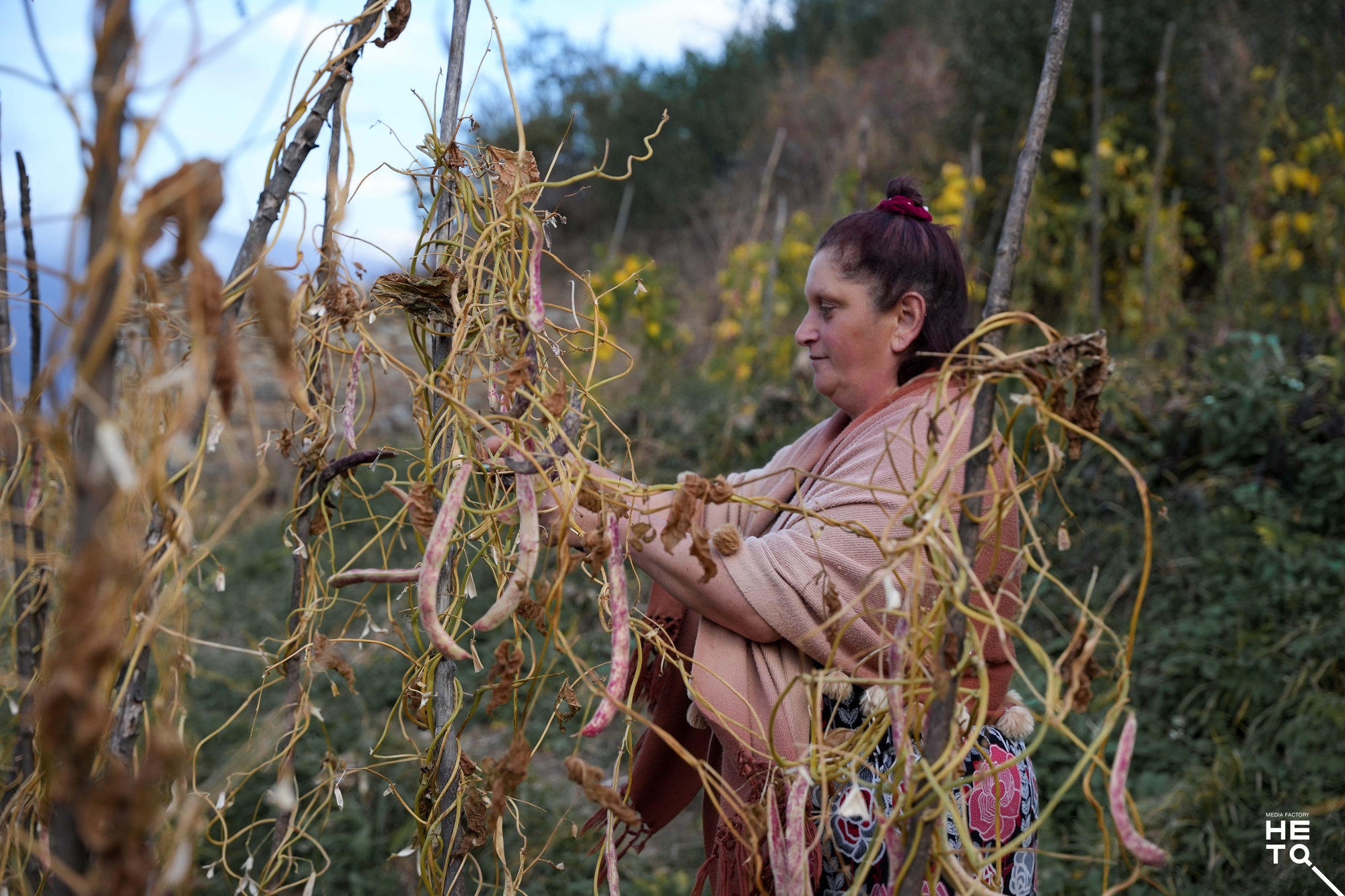
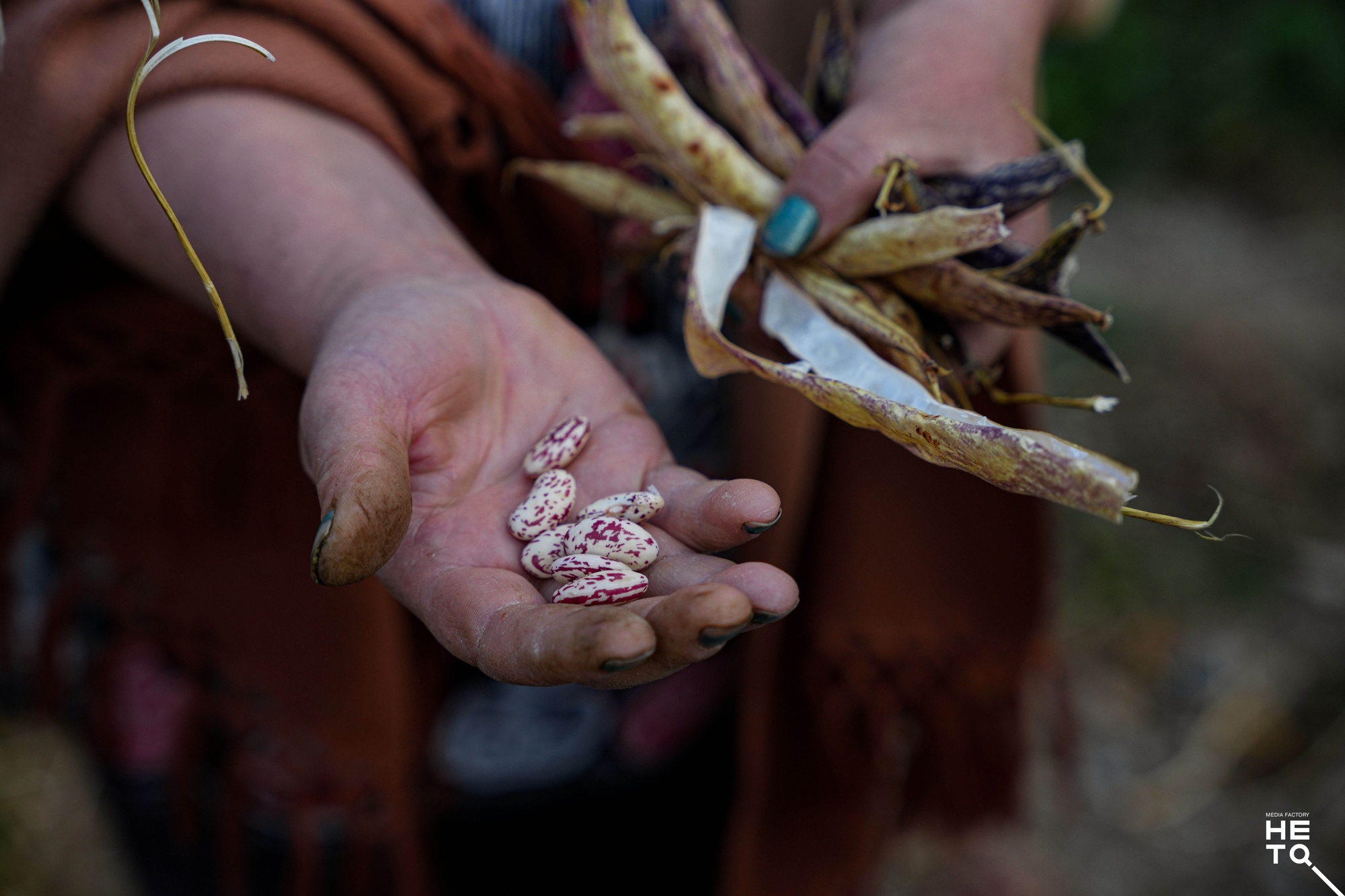
"Now I need to sell these and buy flour to get through the winter. People in Kapan already know us—they call in advance and tell us what they need. For example, someone wanted beans, which we sell for 2,000 AMD per kilo. But it’s impossible to survive on that income alone unless we get help from abroad," Christine explains.
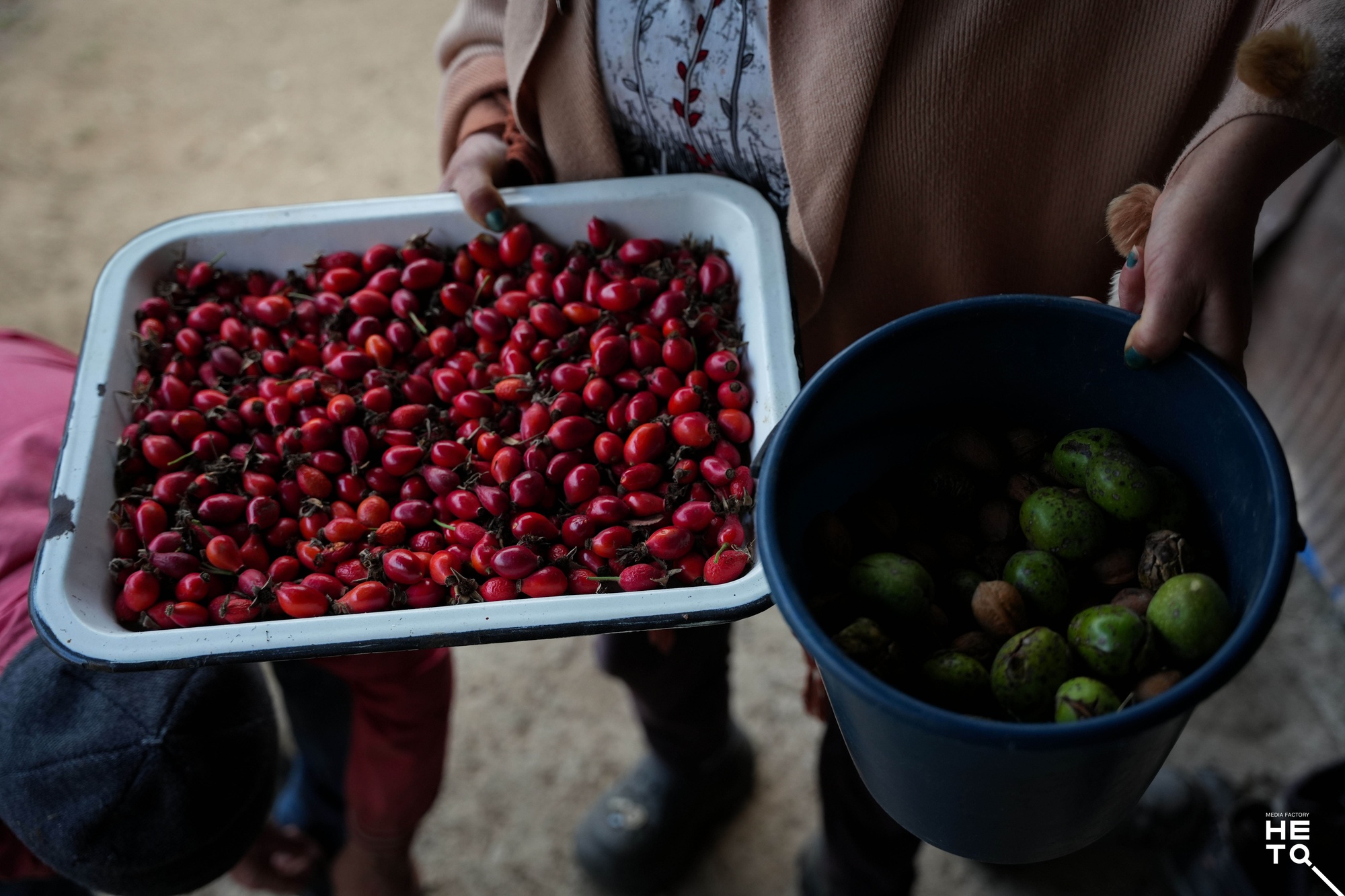
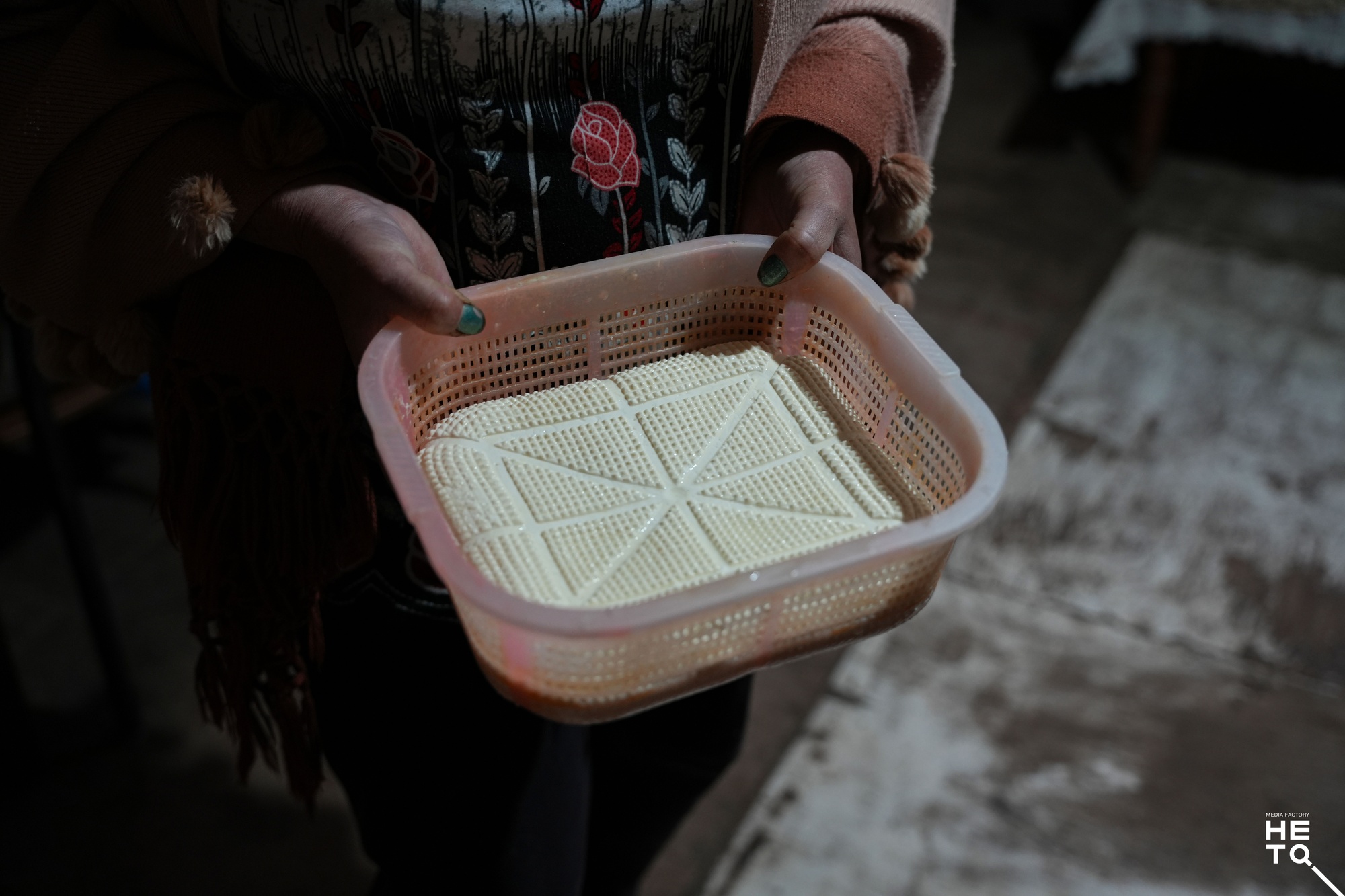
The Kajaran Municipality provides firewood to the village's permanent residents for the winter.
“It’s cold here all year round. We received ten cubic meters of wood, and the head of the region promised to provide another 10 to ensure we have enough,” says Christine.
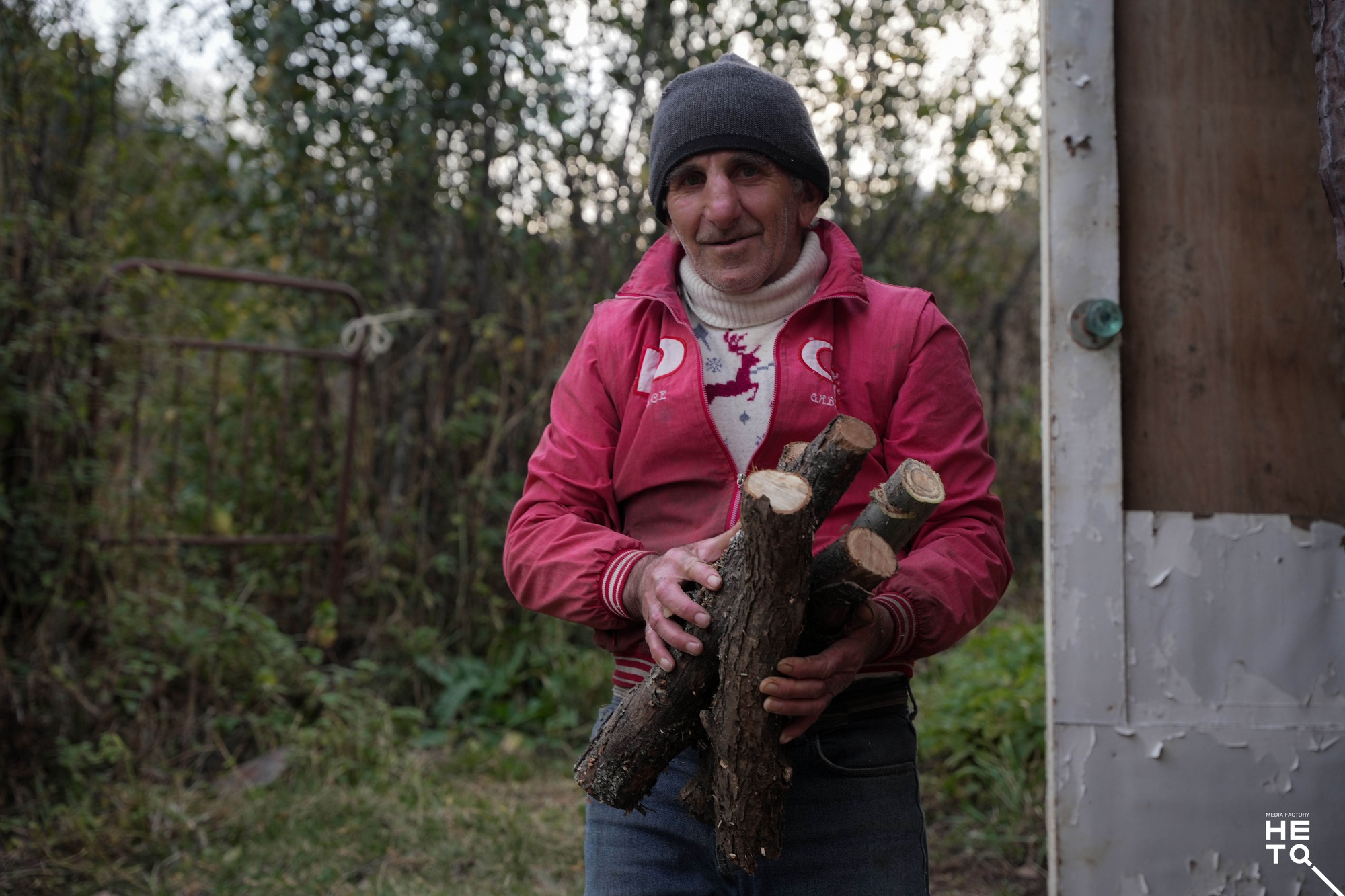
Six of the eight residents of Ajabaj live on the other side of the Geghi River: Armen and Misha with their wives and Andranik with his father. To visit their neighbors, Christine and Suren cross the patched bridge connecting the village's two sides several times a day.
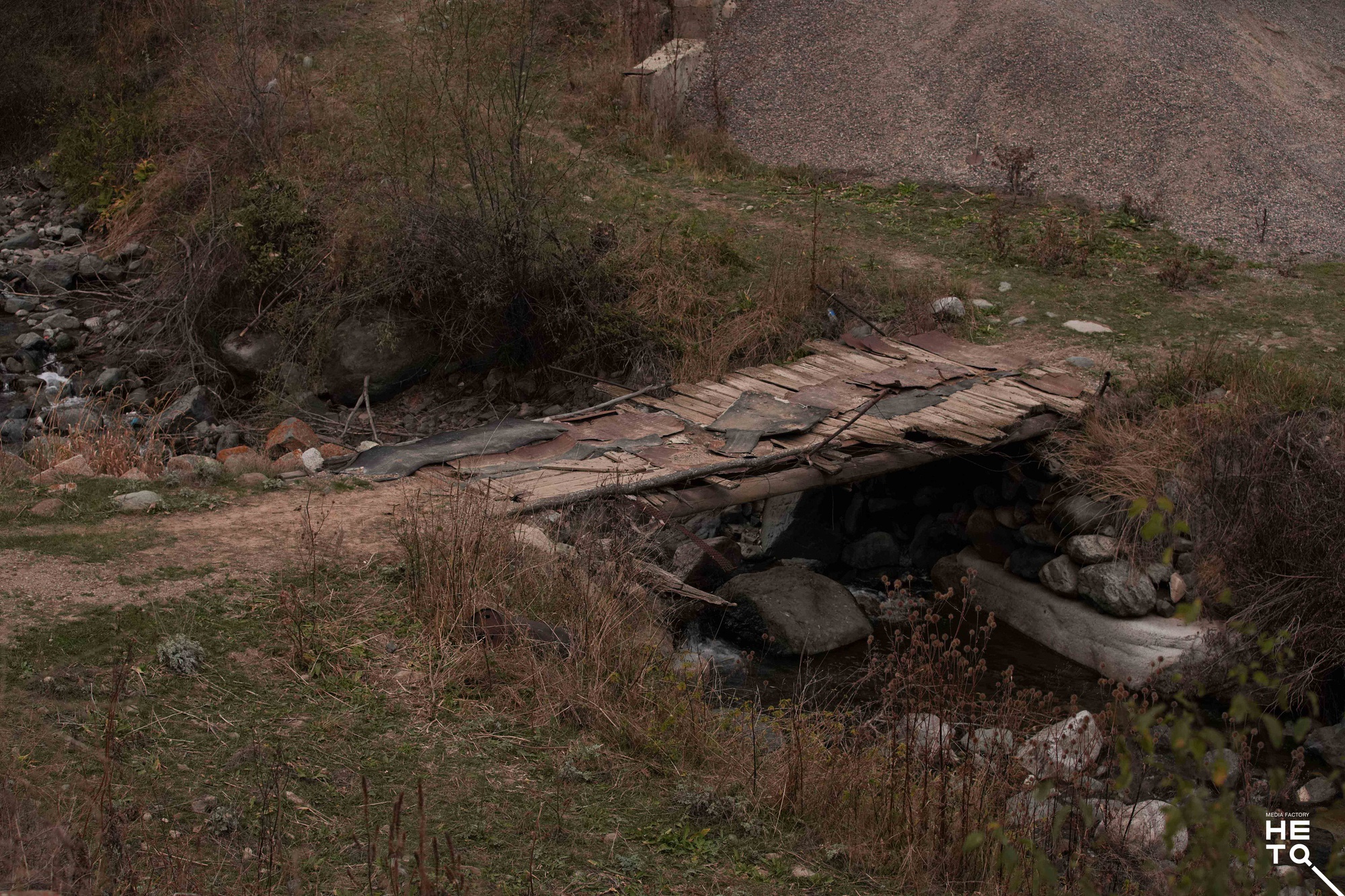
Andranik and his father raise sheep in Ajabaj. His wife and children live in Kapan and visit the village from time to time.
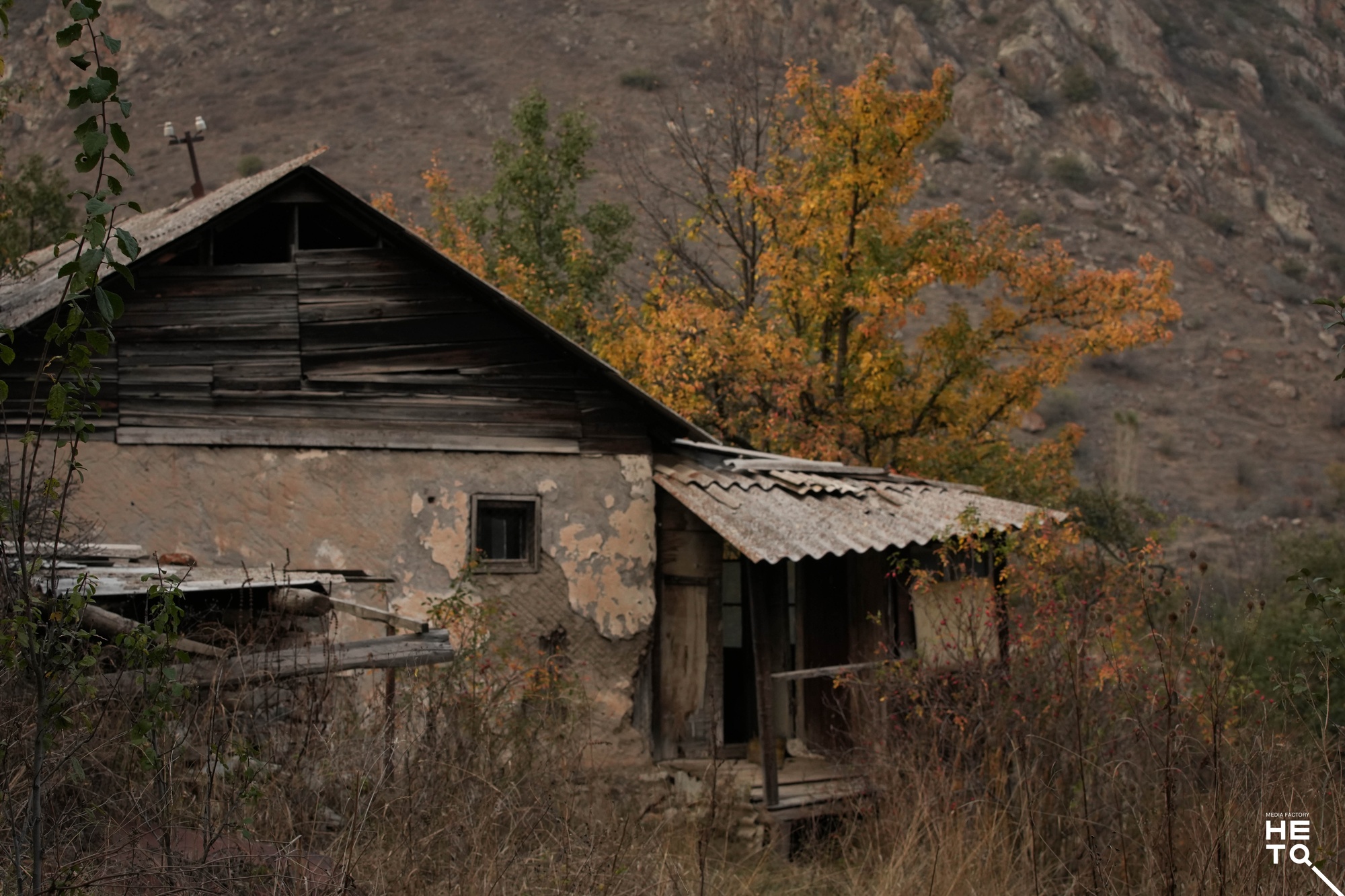
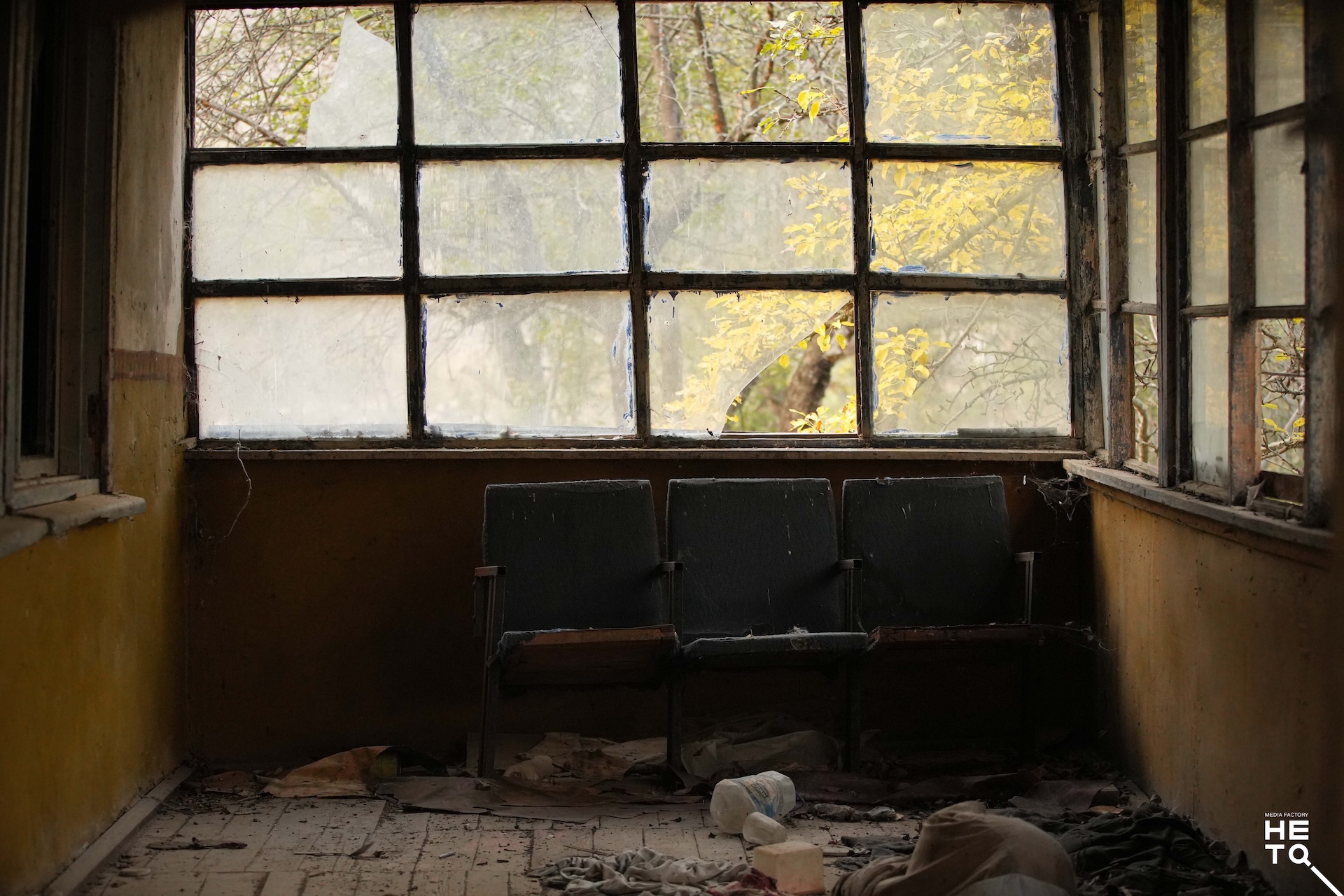
Misha is a forester who monitors the area for poaching. He has a son who also lives in Kapan.
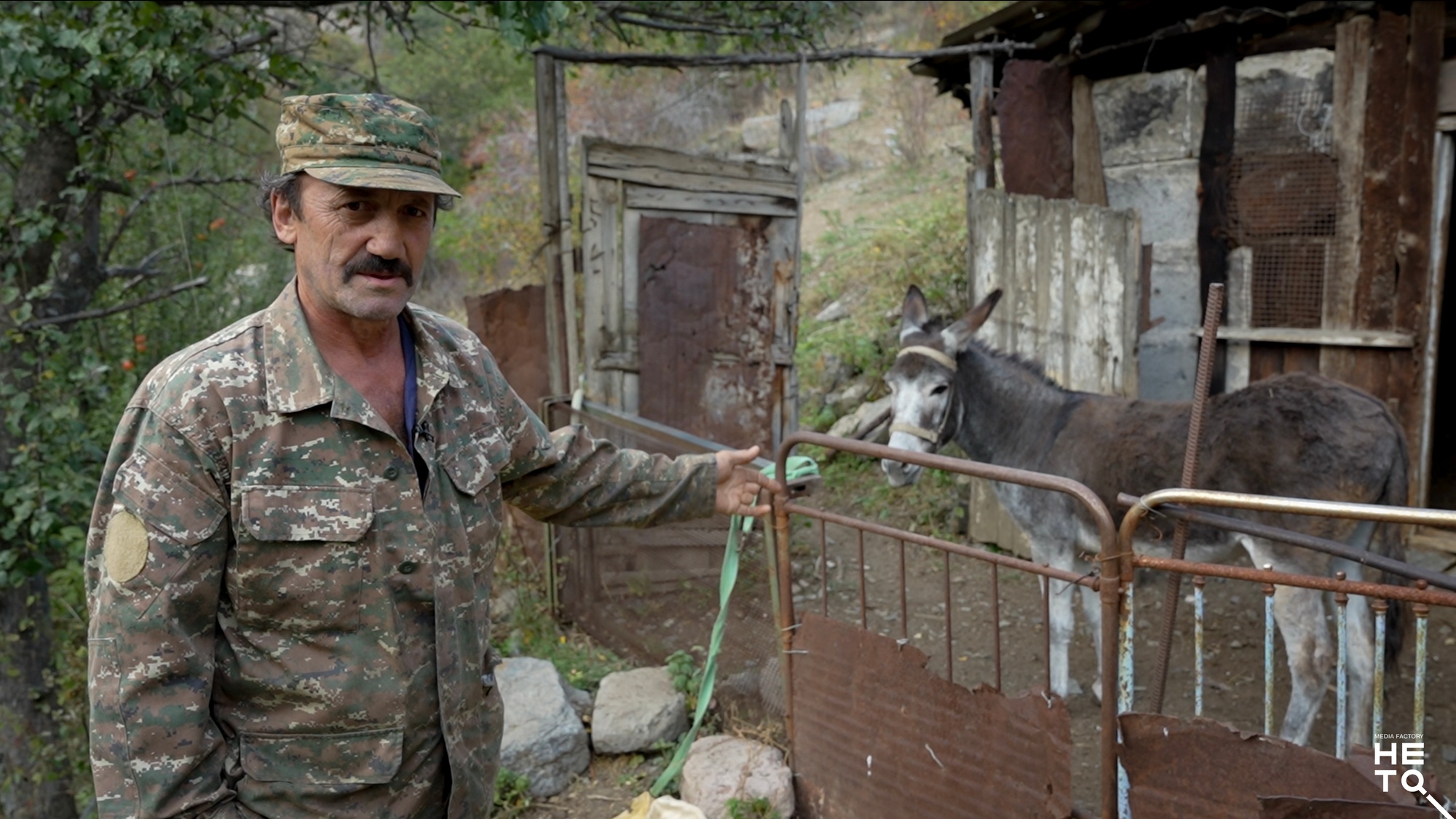
The other "official" of the village is Armen, the environmentalist.
"I have the authority to stop and inspect vehicles entering the village. I ensure that animals aren't hunted and that nature is not harmed," Armen explains.
He cannot explain who assigned him this role.
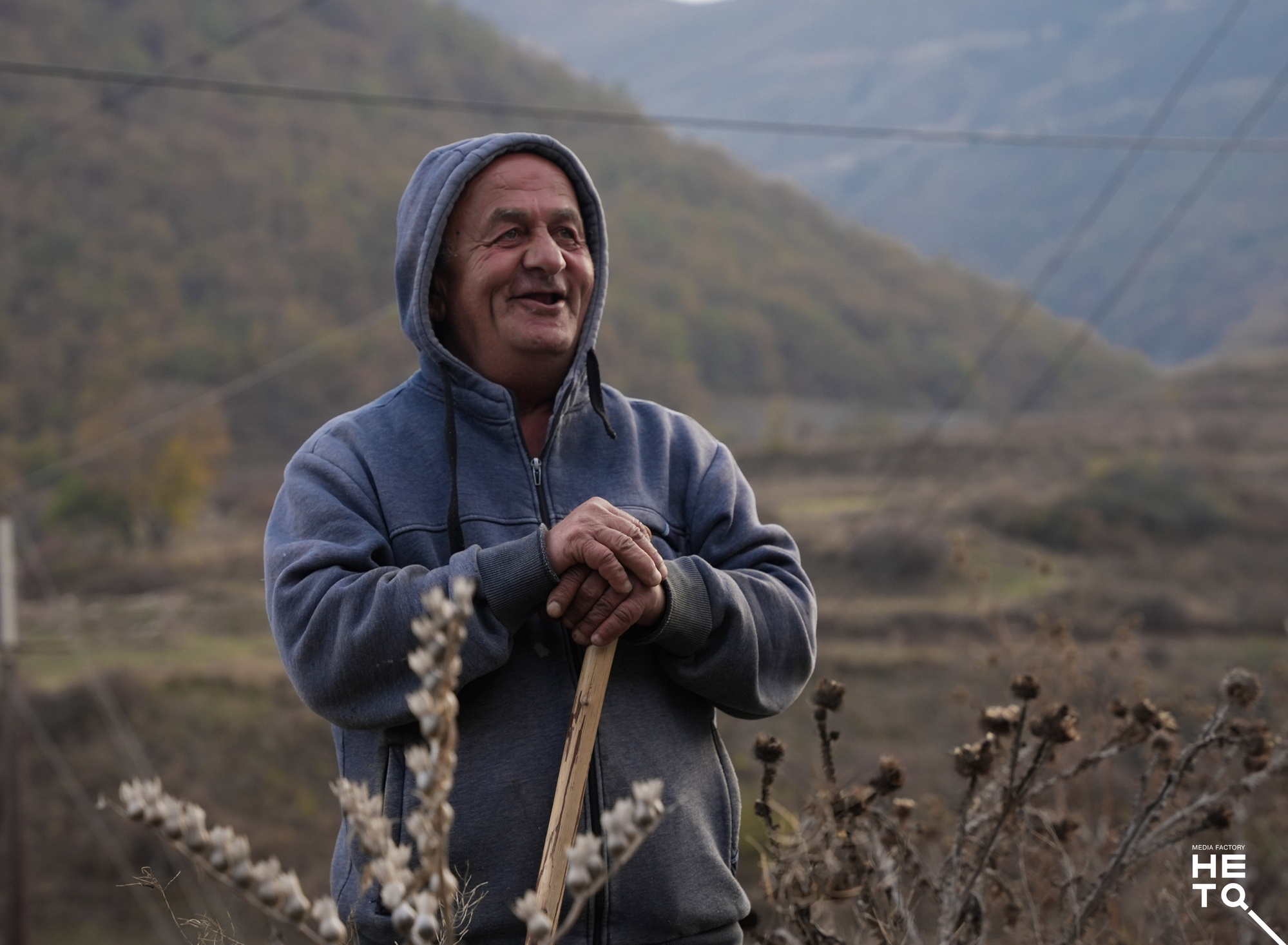
Ajabaj is connected to the outside world by a crumbling road. No signs indicate the village, and no people are seen coming or going.
"Two years ago, someone arrived from abroad. I stopped him. I need to know who is coming to the village and why—he could have been an Azeri intelligence agent. He spoke English, but we couldn't understand him. I took him to Kapan, where they brought in a translator, and it turned out he was just a tourist," Armen says about the rare visitor to Ajabaj.
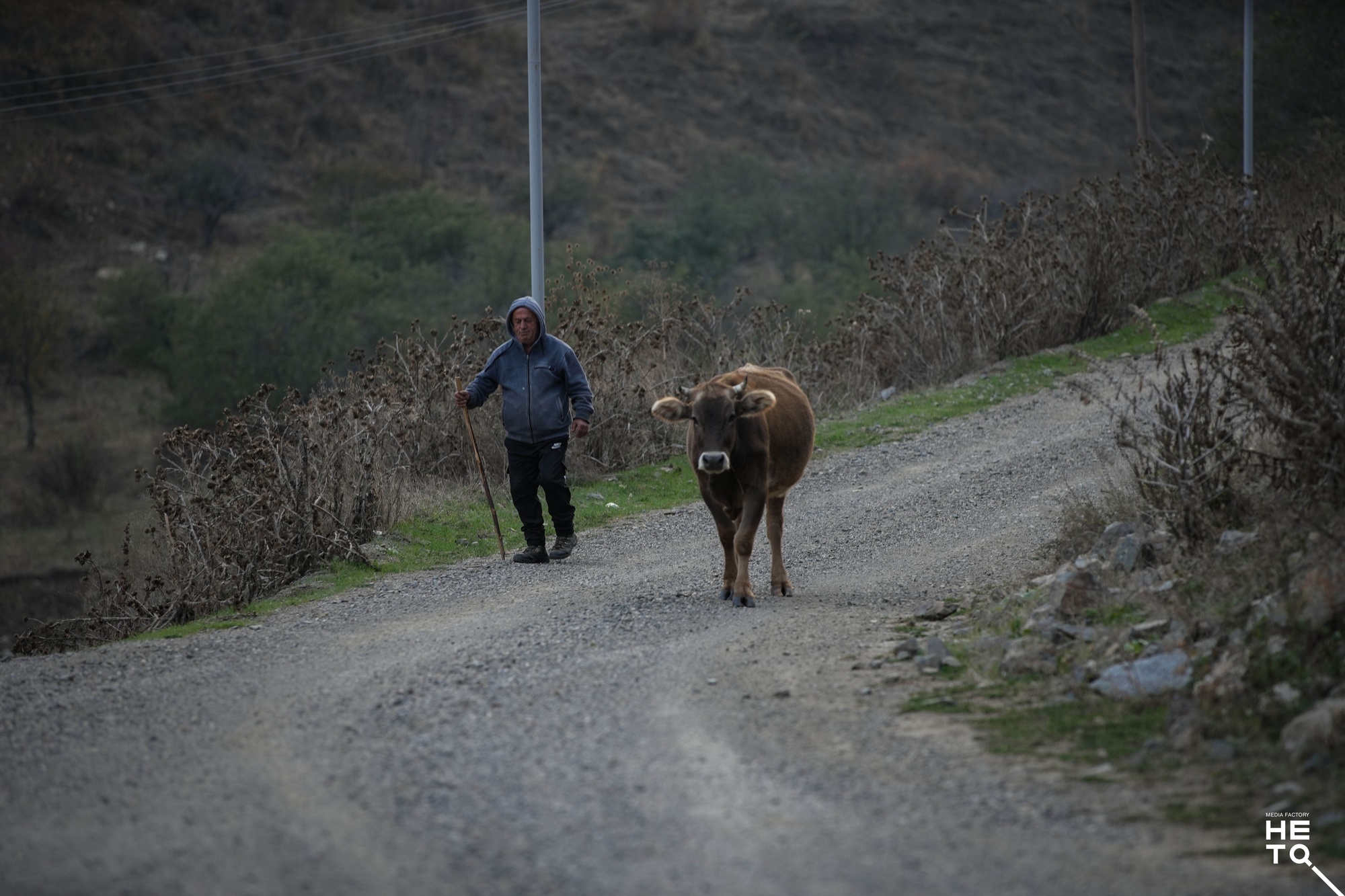
Armen's wife spends half the month in Ajabaj and the other half in Kapan with their sons. Armen takes care of all the work when she is away, including milking the cows, making cheese, and canning.
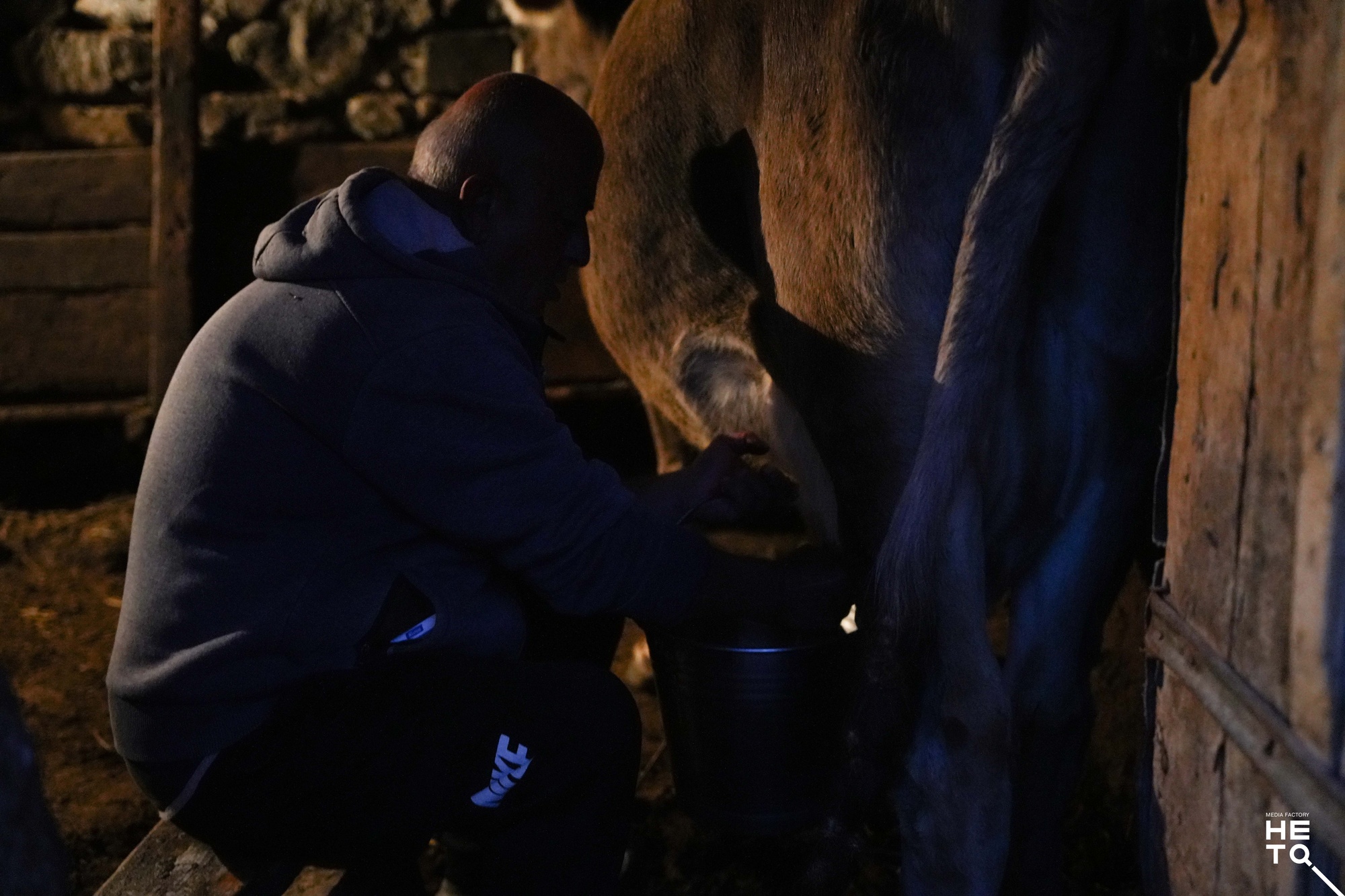
The village lacks basic living conditions. The road is rocky, and there is no hope of it being asphalted. There is no public transportation, gas, shop, school, or kindergarten. The Municipality provided pipes for each family to fetch water from the mountains on their own.
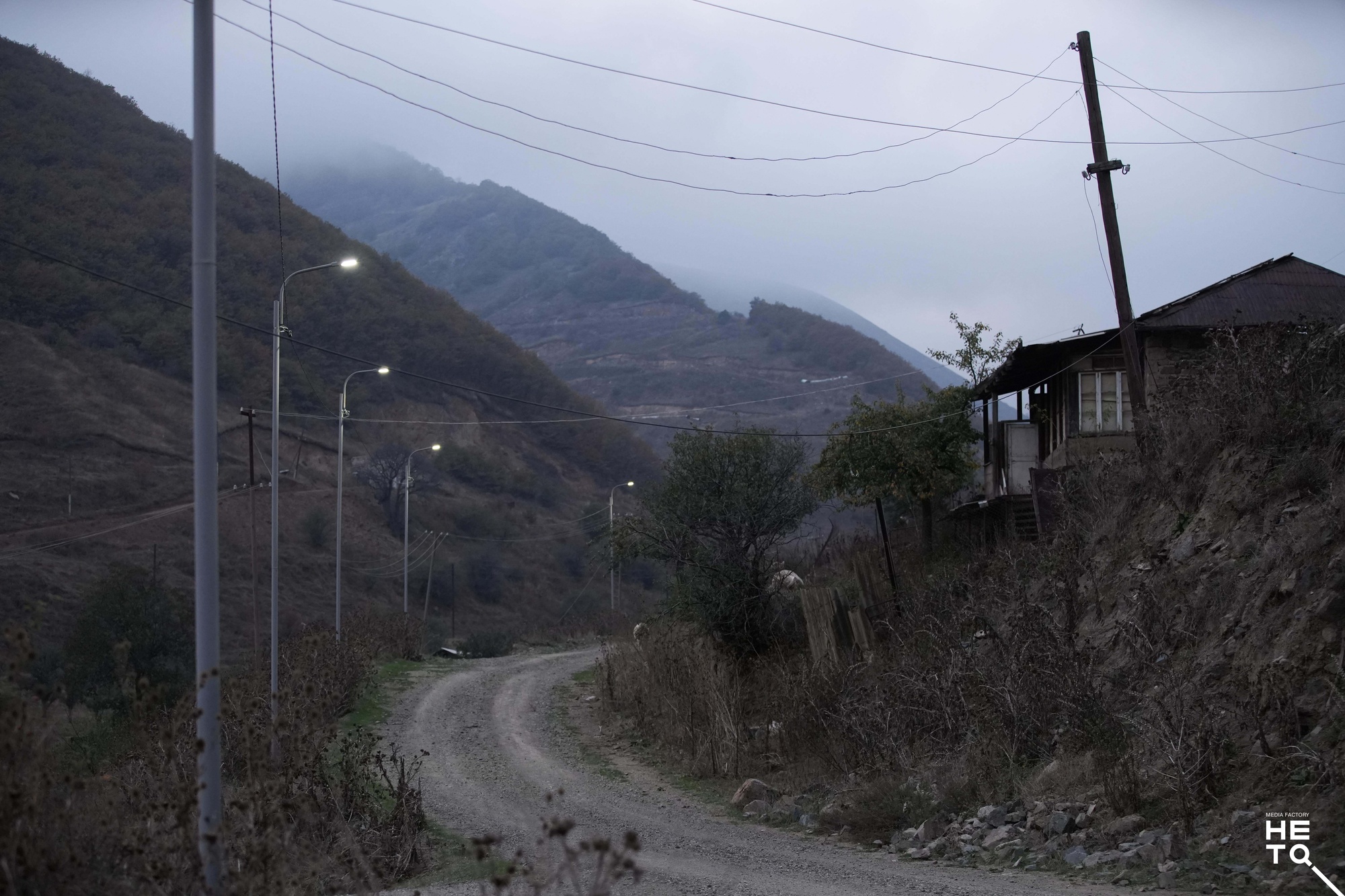
"In winter, no cars can reach us because the road is covered with two meters of snow. Before the snow arrives, we stock up to last us for several months," says Christine.
The four families living in Ajabaj have houses in Kapan; they have sent their children to the city and are involved in raising livestock.
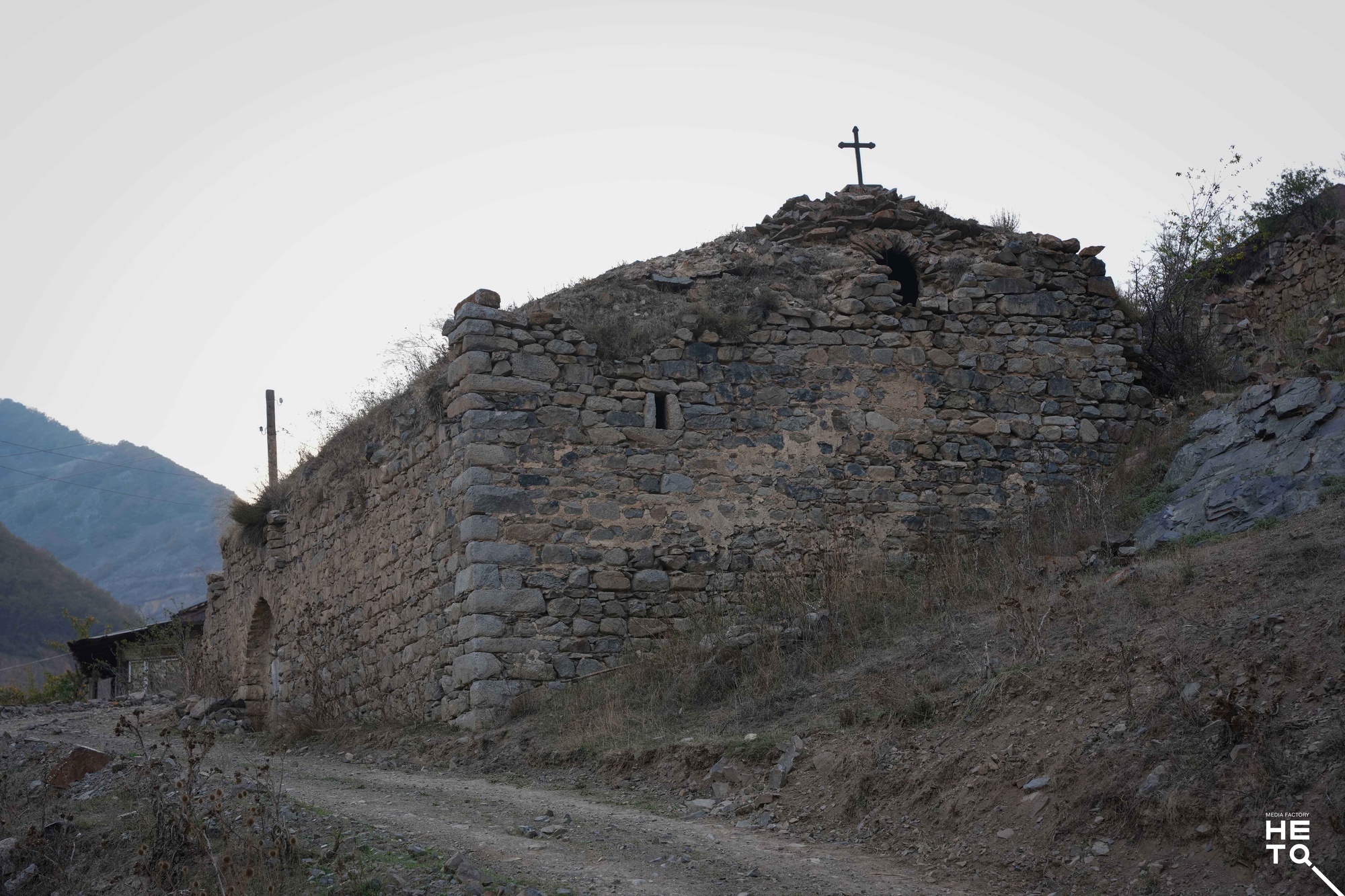
"We have adapted to life in Ajabaj, and our livelihood is here. But what will my son do if he comes? He's young, so let him live in the city and enjoy life. It is good for us; the clean air, away from all kinds of troubles, and completely isolated," says Suren.
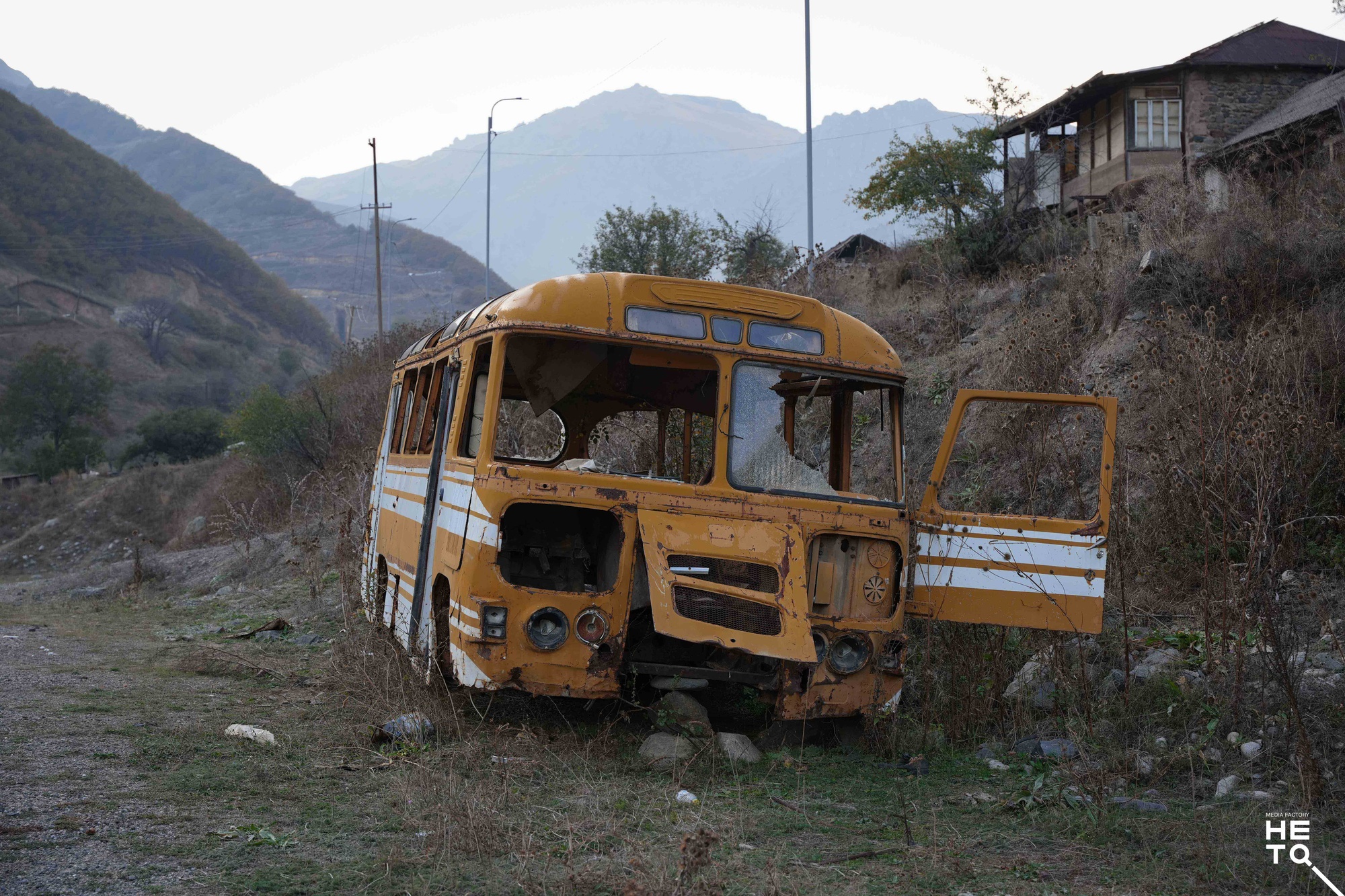
Suren says nothing has changed in the village over the past thirty years. The community’s development plan for 2023-2025 does not include any projects for Ajabaj. Meanwhile, the Government is offering 5 million AMD to people from Nagorno-Karabakh to build or buy a house in Ajabaj.
However, according to Christine, Nagorno-Karabakh residents came, looked around, and left to find a more comfortable place to live.
I asked Suren what he would like to see in his village.
— An antenna. We have a satellite dish but not a regular antenna. It only picks up a few Russian channels and Public TV.
— What does Public TV show? What's the situation in the country like?
— It's bad, we lack peace. But there’s also some progress: schools and kindergartens are being renovated.
— Do they talk about people like you?
— This is the first time journalists have come to us. I’ve never seen anything like this.
By the decision of the Supreme Council in 1991, Ajibaj was renamed Ajabaj. We were unable to find the meaning and origin of the name. However, the Dictionary of Toponyms of Armenia and Adjacent Regions indicates that the name appeared in medieval Armenian sources.
This project was supported by CFLI. The views expressed in this video are those of the author(s) and do not necessarily reflect the official policy or position of CFLI.

Author
Students
Ani
Navasardyan
Instructor
Instructors
Mariam
Barseghyan
Team
Team
Zhanna
Bekiryan
Team
Harutyun
Mansuryan
Team
Lilit
Tarkhanyan
Team
Anush
Mkrtchyan